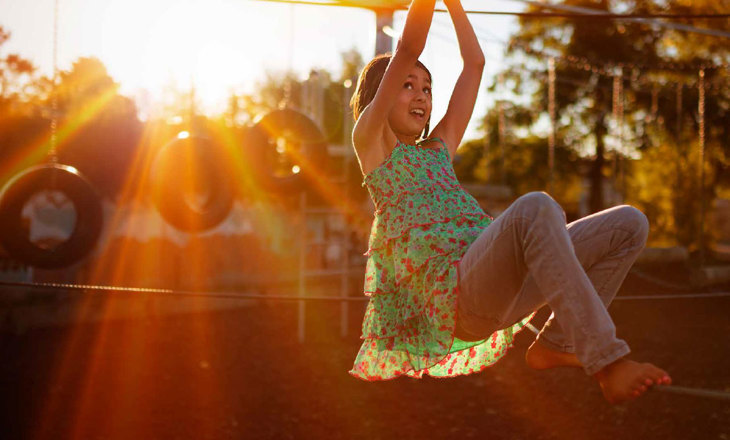The importance of play
The importance of play

Play allows children to experience fun, joy and laughter in a way that is important to them. It’s also where they develop and practice life skills.
The positive benefits of play include:
- being physically active in a fun way that develops fundamental movement skills
- encouraging self-directed creativity and innovation
- improving social and emotional connection
- improving a young person’s understanding of their relationship with the physical environment
- improving resilience, independence and leadership by determining their own outcomes
- aiding better decision-making based around elements of challenge and risk.
Sport NZ’s principles of Play
Like other parts of the sport and active recreation, government and private sectors, Sport NZ has a role in making sure that opportunities for our kids to play are preserved, enhanced and relevant to the world we live in today. We have developed the following set of play principles to help guide our work in partnering and collaborating with others interested in play, and to advocate on the importance of play for young New Zealanders.
Play is important to the wellbeing of young New Zealanders
- It is vital in ensuring young people have the best possible start in life and develop a lifelong love of community sport and being physically active.
Play is a cornerstone of our Physical Literacy Approach
- Play is a crucial part of physical, cognitive, social/emotional and spiritual development for young people.
Play is the shared responsibility of everyone
- It needs clear and strong leadership from those who can enable play. This includes the views and opinions of young people.
- It is equally important in the settings of home, school and community.
Young people must have access to enriched and varied playful experiences within their local environments
- A variety of play types
- As an individual and with others
- Space and place – man-made and natural
- Sensory rich
- A sense of an escape from realism
- Physical movement
Adults must understand what their role is in enabling play
- Quality play experience involves limited adult input.
Young people need the opportunity to experience risk and challenge through play
- The provision of opportunities for all children to encounter or create uncertainty, unpredictability and potential risks (including physical, cognitive, social/emotional and spiritual) as part of their play.
- We do not mean putting children in danger of serious harm.
Wherever possible, play should include the opportunity to be active.
